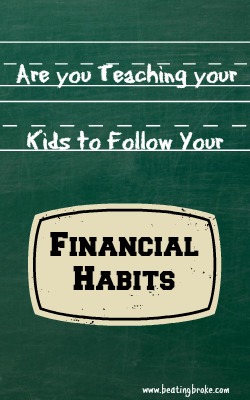Hey there, fellow car enthusiast! If you’ve ever experienced that heart-sinking moment when your car won’t start because of a dead battery, you know the importance of a reliable battery charger. In this guide, we’re going to dive deep into the world of battery chargers and explore their growing significance in today’s automotive landscape. So, grab a cup of coffee, settle in, and let’s get revved up about keeping those wheels turning!
The Shocking Aco Anecdote
Before we delve into the nitty-gritty of battery chargers, let’s start with a quirky anecdote involving the word “aco.” Picture this: You’re on a cross-country road trip, miles away from civilization. As you enjoy the scenic beauty, you suddenly hear a loud “aco!” Startled, you pull over to investigate, only to find that your car battery has given up on you. In this dire moment, you wish you had a reliable battery charger to save the day.
The Basics: What Is a Battery Charger?
Alright, let’s start with the basics. A battery charger is your trusty sidekick when it comes to keeping your car’s battery in top shape. It’s a device that replenishes the energy in your battery by supplying it with electrical charge. But not all battery chargers are created equal. Some charge quickly, while others employ a gentler approach known as a trickle charger.
Why YOU Need a Battery Charger
Now, let’s get personal. Why should YOU care about having a battery charger? Well, for starters, it can save you from those dreaded moments of being stranded with a lifeless car. Imagine you’re rushing to an important meeting, and your car refuses to start. A battery charger can swoop in like a superhero, giving your car the jolt it needs to get you back on the road.
Additionally, a battery charger is a smart investment for your wallet. It can extend the life of your battery, helping you avoid the costly expense of frequent battery replacements. So, whether you’re a daily commuter or an occasional road tripper, a battery charger is a must-have tool in your automotive arsenal.
The Versatility of Trickle Chargers
Now, let’s talk about trickle chargers. These little champs are like the gentle caregivers of your car’s battery. Unlike regular chargers that deliver a rapid charge, trickle chargers provide a slow and steady stream of power. This method is perfect for long-term battery maintenance.
Here’s the deal: If your car tends to sit idle for extended periods – like a vintage beauty in your garage or your RV during the offseason – a car battery trickle charger is your best friend. It prevents your battery from losing its charge and helps it stay in tip-top condition, ready for action when you need it.
The Scorecards of Reliability
Picture this: You’re in a rush, and you grab the first battery charger you see on the shelf. You hook it up to your car’s battery, hoping for a quick fix. But as you wait impatiently, you realize it’s taking forever to charge. Frustrating, right?
This is where the importance of reliability comes into play. When choosing a battery charger, you want one that earns top marks on the reliability scorecard. You don’t want to be stuck waiting for hours, twiddling your thumbs while your charger works its magic.
Choosing the Right Battery Charger for YOU
So, how do you select the perfect battery charger? It’s all about finding the one that suits YOUR needs. Here are a few factors to consider:
Battery Type: Check the type of battery your vehicle uses. Some chargers are designed specifically for lead-acid batteries, while others work with different battery chemistries.
Amperage: The amperage rating determines how quickly the charger can replenish your battery. Higher amperage means faster charging, but keep in mind that a trickle charger has a lower amperage for slow and steady maintenance.
Safety Features: Look for built-in safety features like overcharge protection and reverse polarity protection. These features ensure your battery and charger stay safe during the charging process.
Portability: If you’re on the go frequently, consider a portable battery charger that you can easily take with you.
Price: Of course, your budget plays a role. Battery chargers come in a range of prices, so find one that fits your wallet without compromising on quality.
The Focuses: Battery Health and Longevity
Now, let’s shift our focus to the long-term benefits of using a battery charger. Think of your car’s battery as its heart. Just like you’d prioritize your heart health, your car’s battery health should also be a top concern.
Regular use of a battery charger, especially a trickle charger, helps maintain your battery’s longevity. It prevents sulfation, a common issue where lead sulfate crystals build up on the battery plates over time. These crystals can reduce your battery’s capacity and lifespan. A trickle charger keeps these nasty invaders at bay, ensuring your battery stays strong.
Aco Saves the Day Again!
Remember our quirky “aco” anecdote? Well, picture this scenario: You’re on another road trip, and you’ve diligently used a trickle charger to keep your battery in top form. As you’re driving through a remote mountain pass, you encounter a sudden snowstorm. Visibility is near zero, and your headlights are your lifeline.
In this crucial moment, your well-maintained battery powers those headlights, guiding you safely through the treacherous terrain. You can thank your trusty trickle charger for this hero moment.
The Future of Battery Chargers
As technology advances, battery chargers are evolving too. The future promises smarter and more efficient chargers that can communicate with your car’s electronics to provide the perfect charge. Imagine a charger that knows exactly how much juice your battery needs and delivers it with pinpoint precision. It’s like having a personal battery concierge!
There you have it, a comprehensive guide to the growing significance of car battery chargers. Whether it’s the lifesaving power of aco, the reliability scorecards, or the focused approach of trickle chargers, these devices are more than just accessories – they’re your ticket to hassle-free driving and long-lasting battery health. So, don’t wait for that fateful dead battery moment; invest in a quality battery charger and keep the wheels turning smoothly. Your future self will thank you for it. Happy driving!


